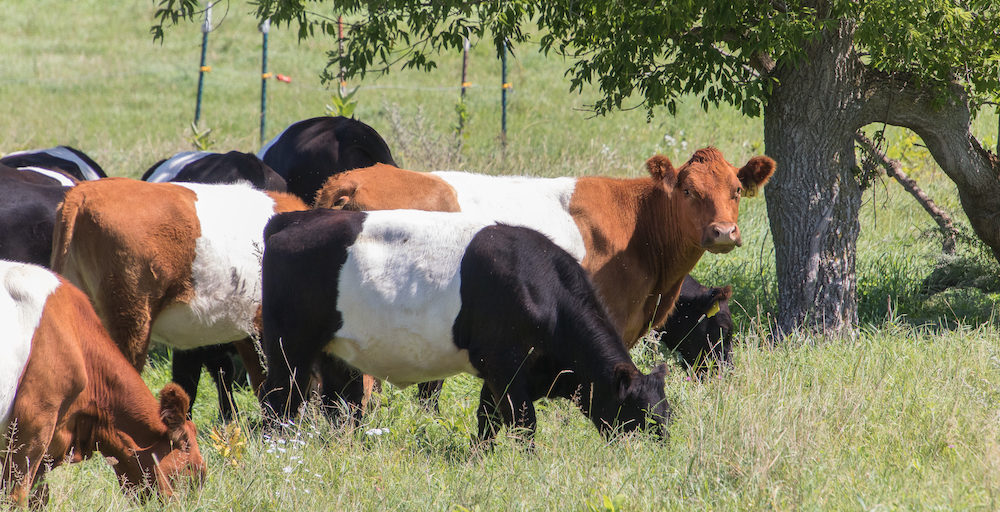My husband Dave likes to joke that when I was a kid growing up in New York City, I read Little House on the Prairie and decided to become a farmer.
While I love tales about clever people creating new communities (whether in the past or in some distant future), the truth is I knew next to nothing about Laura until I was in my 30’s. I became acquainted with her and Ma and Pa as I read to my children in our South Minneapolis home. I was captivated by the resourcefulness and skills demanded by the times. I was drawn to the self-reliance and community inter-dependence described in those children’s books. (And yes, we made the pilgrimage to her home and bought the stiff-brimmed bonnets.)
Fast forward a whole lotta years and here I am, a baby boomer
from the Bronx raising beef cattle on
Bull Brook Keep, our northwestern Wisconsin farm. (A far cry from a full career in business suits and awful commuter traffic.) This morning’s chores included moving our beef cattle to new pasture, feeding and watering the chickens, exercising the dogs, and meeting with a customer to deliver cuts of beef equaling 1/4 steer.* And of course, I went through the early emails and reviewed my digital photo files for possible uploads to my website.

Cabbage fermenting to sauerkraut
Later in the day, Dave and I enjoyed a dinner of home-grown, grass-fed beef Bourguignon. And in the evening I sliced, brined and packed cabbage into half-gallon jars. In a couple of weeks, it’ll ferment to sauerkraut.

French sourdough boules
It’s late, and I just pulled a couple of French sourdough loaves from the oven – a weekly demand and a much-anticipated ritual.
It is very, very late and I’m tired. The tomatoes, peppers and onions on the kitchen counter will have to become salsa on another day. I’m ready for this day to be done.
Yes, I’m feeling Laura Ingalls Wilder…like a bad ass Laura with Internet coverage and in-floor heating.
Sylvia
*We offer our 100% grass-fed beef in variety packages (ground beef, roasts and steaks) in a range of sizes starting at just 25-30 lb. Reserving an order is easy online. We deliver to drop sites in Minneapolis/St. Paul, MN.
Like this:
Like Loading...


















